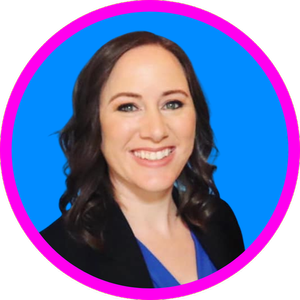What is a CPA (Certified Public Accountant)?

Rebecca A. Casarez, CPA

Call To Action (Bookkeeping)
If you are like any of my friends or relatives, the CPA is the “guy that does my taxes” and is generally put in the category of boring, un-relatable, and represents the much-to-be-feared Internal Revenue Service (IRS).
All joking aside, many people are not really sure what a CPA is. A CPA is a state-issued license that has been around for over 100 years and is regulated by each state’s Board of Accountancy.
This license provides an individual with the authority to practice “public accounting”, including offering tax preparation, financial review and compilation, auditing, and other services to both individuals and businesses.
The license is highly revered and sought after and less than 50% (on average) of candidates pass the exams and obtain the license.
The CPA designation provides the opportunity for a candidate to work in both public and private accounting industries (financial, managerial, or tax specialties).
What does it take to become a Certified Public Accountant (CPA)?
An aspiring CPA must do the following before being licensed:
-
Obtain 150 Educational hours (usually a Bachelor’s degree)
-
Obtain additional educational courses in business and accounting (certain states)
-
Pass the (4) part Uniform CPA exam, pass all (4) within (18) months of each other.
-
Pass a state-approved ethics course
-
Minimum (1) year experience working under a licensed CPA
This link provides an explanation of state-specific requirements:
The American Institute for Certified Public Accountants (AICPA) oversees the industry and ensures that all CPAs adhere to strict ethical and legal standards. The AICPA also has tips and advice on how to become a CPA.
What does the Uniform CPA exam cover?
In order to understand what a CPA needs to know, it is important to talk about what they are tested on. Each exam is at least 3.5 hours long and includes both multiple choice and real-life problem-solving scenarios called “simulations”.
Auditing & Attestation (AUD):
“The AUD section covers the audit process, generally accepted auditing standards and other standards related to attest engagements, as well as the skills needed to apply that knowledge”. In other words, a CPA needs to have extensive knowledge in applying GAAS, performing an audit to ensure compliance as well as understanding internal controls, financial reporting, and financial statement analysis.
Business Environment & Concepts:
“BEC covers knowledge of general business — the things you should know to fully understand business transactions and their accounting implications”. This exam provides the foundation for business applications, financial statement analysis, applied economics, and running a business from a macro viewpoint.
Financial Accounting & Reporting:
“FAR covers generally accepted accounting principles for business enterprises, governmental entities, and not-for-profit organizations, as well as the skills needed to apply that knowledge”. FAR is one of the toughest exams because it covers the most material, calculations, and applications in accounting topics. A CPA candidate needs to have a strong understanding of financial practices, such as cost accounting, variance analysis, and financial reviews. They need to be able to apply these skills in all industries, such as for-profit enterprises, governmental, non-for-profit, and so on.
Regulation:
“REG examines federal tax procedures, ethics, professional and legal responsibilities, and business law, as well as the skills to apply that knowledge in the real world”. As you can see, this exam covers what most people think a CPA is, a tax accountant. This is an integral skill to master and the exam covers how to perform tax and business-related services across a wide spectrum of situations.
(above exam descriptions are taken from This Way to CPA)
Why hire a CPA?
It is true that many CPAs work in compliance-related specialties, prepare tax returns and perform audits. The regulatory agencies for most individuals and businesses are the Internal Revenue Service (IRS) and Generally Accepted Accounting Principles (US-GAAP) for tax and financial purposes, as well as local and state regulatory agencies.
However, limiting a CPA to handle only compliance work handicaps their skill sets. As mentioned above, a CPA has to have the most education of any accounting-related designation, have experience in public accounting as well as pass (4) extremely difficult exams – again more than any other designation is required to do.
A CPA must have an extensive understanding of business as a whole and a talented CPA will be able to apply this understanding to their client’s needs instead of focusing on a single aspect. For example, a manufacturing business (small or large) has the following needs:
-
Inventory Processing & Control – implementing workflows and systems to maximize the manufacturing process while minimizing defects, returns, and so on.
-
Asset management & safeguarding – implementing internal controls to reduce (or eliminate) theft, misuse, and so on of any asset (cash, equipment, inventory, etc)
-
Customer Service – ensuring that the pipeline and process the customers go through is efficient and provides value throughout the customer’s journey (i.e. from the sales discovery pitch all the way through offering warranties). This is also where necessary credit approval will take place to ensure the customers will not default on the sales orders.
-
Vendor & Supplier relations – discussing and negotiating the best purchase orders, terms, and agreements to ensure that customer orders are fulfilled timely and accurately.
-
Firmwide operations, finance and admin, human resources and IT needs – overall, the firm’s managers and CEO, CFO, etc… need to operate using the best use of its resources and produce the most profit while striving to hit the firm’s targeted goals.
There are many more, but these give you an example of what an enterprise (and its owners and managers) have to master throughout the life of the firm. As you may have noticed, the CPA is prepared to assist and perfect the applications of these needs. The CPA is prepared through education, experience, and by being tested.
Disclaimer:
This publication is designed to provide information on federal tax and accounting laws and/or regulations. It is presented with the understanding that the author is not rendering legal or accounting services.
This text is not intended to address every situation that arises or provide specific, strategic tax and/or accounting planning advice. This text should not be used solely to answer tax and/or accounting questions and you should consult additional sources of information, as needed, to determine the solution to tax and/or accounting questions.
This text has been prepared with due diligence. However, the possibility of mechanical or human error does exist and the author accepts no responsibility or liability regarding this material and its use. This text is not intended or written by the practitioner to be used and cannot be used by a taxpayer or tax return preparer, for the purpose of avoiding penalties that may be imposed.
Call To Action (Taxes)
Don't forget to share this post!
Copyright 2023 © ProAdvisor CPA
All Rights Reserved
Privacy Policy – Terms and Conditions
ProAdvisor CPA is an active, registered, & licensed Certified Public Accounting firm that abides by the strict regulations of the State Board of Accountancy.





